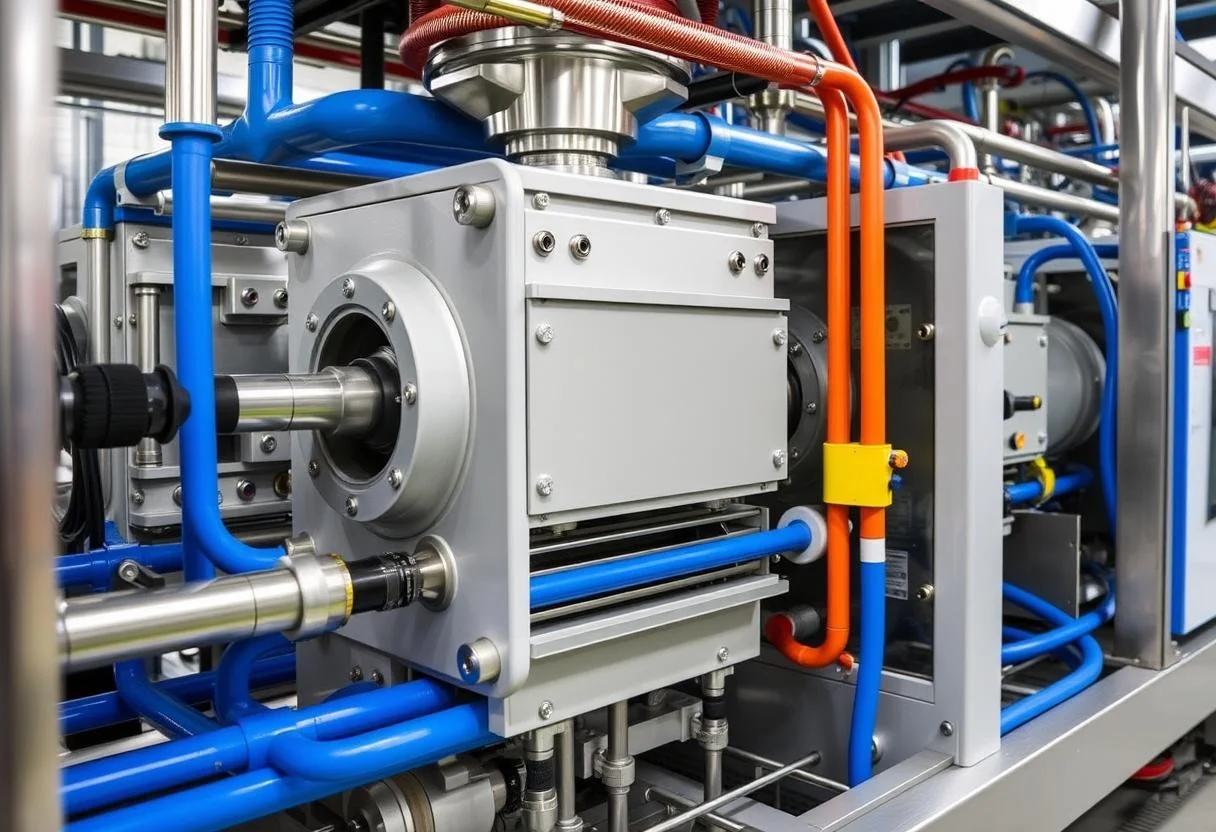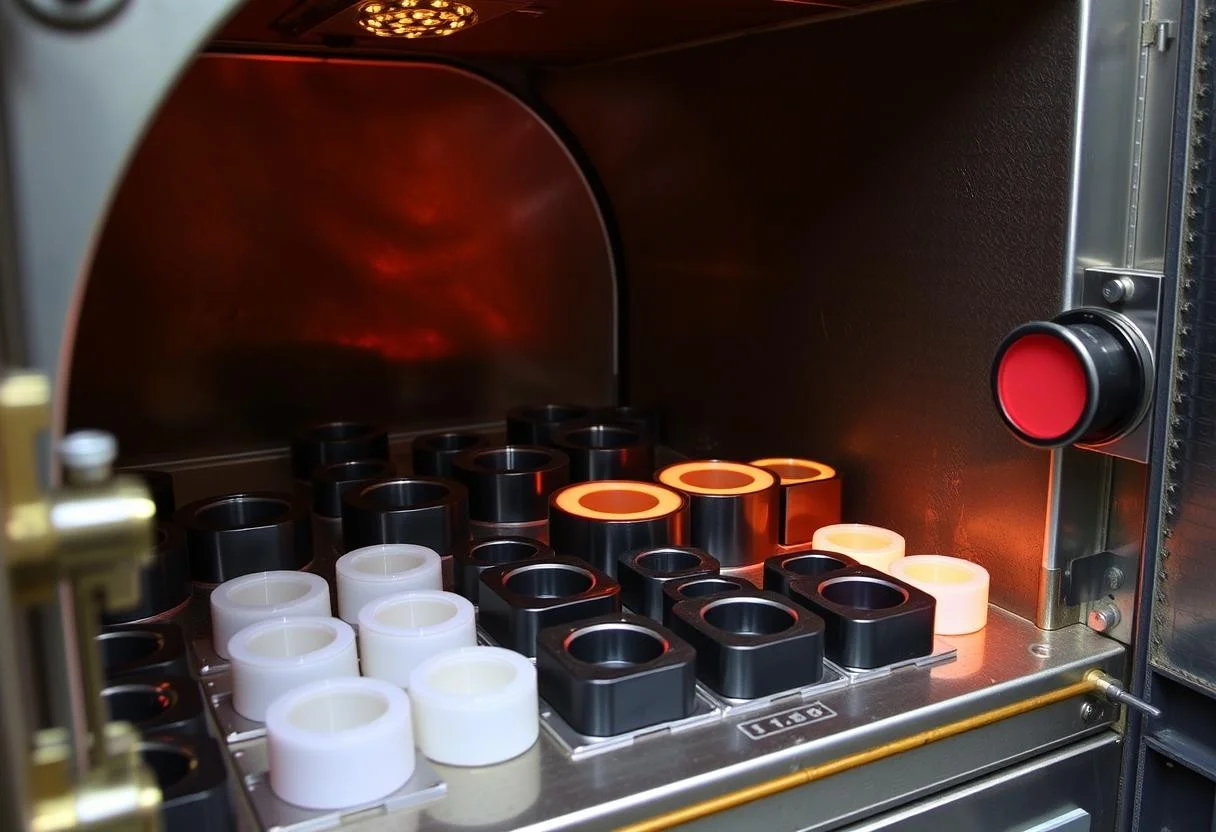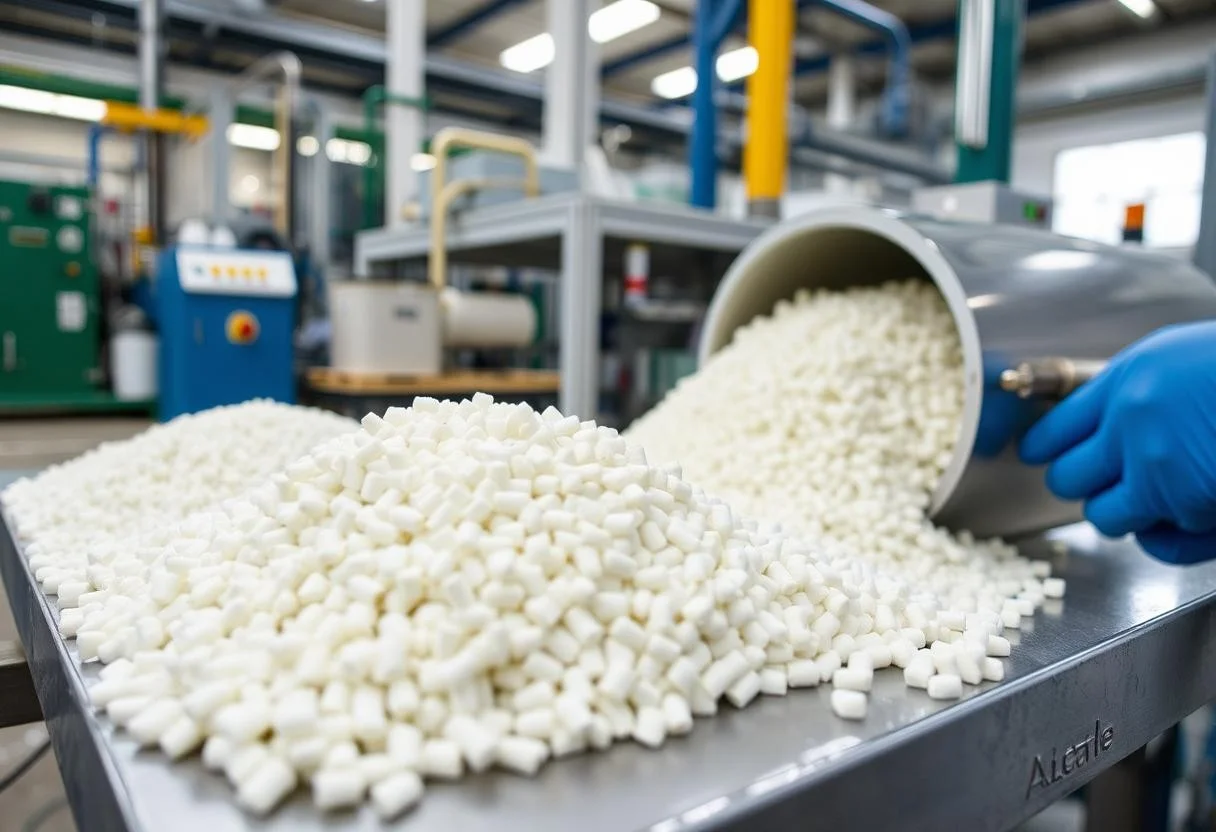This document provides a comprehensive overview of stress cracking in Acrylonitrile Butadiene Styrene (ABS) injection molded parts. It covers the primary causes, ranging from high residual stress and uneven cooling to impure raw materials and environmental factors. Furthermore, it details actionable mitigation strategies, design tips, and the economic benefits of stress prevention. By understanding these factors and implementing the recommended best practices, manufacturers can minimize defects, enhance product quality, and ensure customer satisfaction. Protomont Technologies LLP is highlighted as a trusted supplier of high-quality ABS materials and solutions for both injection molding and 3D printing applications.
The Root Causes of Stress Cracking in ABS
Stress cracking in ABS injection molded parts is a critical concern that can significantly impact the durability and reliability of finished products. This phenomenon typically arises from a complex interplay of material properties, environmental conditions, and processing parameters. Understanding these root causes is the first step toward effectively mitigating stress cracking and ensuring the longevity of ABS components.
High Residual Stress
Occurs when internal stress exceeds the material's elastic limit, often due to rapid cooling, uneven material flow, or excessive molecular orientation.
Uneven Cooling
Differential cooling rates between the surface and inner layers lead to shrinkage variations and internal stress.
Impure or Improper Raw Materials
Substandard or contaminated materials compromise structural integrity, resulting in weaker parts.
Excessive Processing Pressure
High injection pressures and prolonged holding times introduce significant stress during molding.
Internal Stresses from Cooling and Solidification
Shrinkage and molecular orientation during cooling create internal stresses, leading to cracks or fractures.
Environmental Stress Cracking (ESC)
Exposure to chemicals, solvents, oils, or extreme temperatures amplifies existing stresses.
Inadequate Part Design
Design flaws like sharp corners or thin walls act as stress concentrators.
Protomont Technologies LLP provides premium-grade ABS resin, ensuring that manufacturers start with a reliable and consistent material foundation. High-quality materials are essential to avoid stress cracking issues stemming from raw material inconsistencies.
Mitigating Stress Cracking: Optimizing Cooling Processes

Effective cooling strategies are paramount in reducing internal stresses within ABS injection molded parts. Implementing controlled and uniform cooling techniques can significantly minimize differential cooling rates, leading to enhanced material stability and reduced susceptibility to stress cracking.
One effective technique involves using a cooling system that ensures consistent temperature distribution across the mold. This helps in achieving uniform solidification, which prevents the buildup of internal stresses. Gradual cooling methods, such as using controlled cooling channels and adjusting cooling times, are also beneficial in managing variations in shrinkage and molecular orientation.
Additionally, consider using cooling mediums with controlled temperatures to regulate the rate of heat extraction. This reduces the chances of rapid cooling, which can lead to high residual stress. Regularly monitoring and maintaining the cooling system is also crucial for ensuring consistent performance.
By optimizing cooling processes, manufacturers can create ABS parts with significantly lower internal stresses, improving their overall durability and resistance to stress cracking. This approach is particularly important for parts with complex geometries or those subjected to harsh environmental conditions.
Ensuring Material Quality: The Role of Premium ABS
The quality of raw materials plays a pivotal role in determining the structural integrity and performance of ABS injection molded parts. Sourcing high-quality ABS materials that are free from contaminants is crucial for preventing stress cracking and ensuring reliable production.
Substandard or contaminated raw materials can compromise the mechanical properties of ABS, making it more susceptible to cracking under stress. For instance, recycled ABS with inconsistent properties can result in weaker components. Therefore, it is essential to partner with trusted suppliers who provide materials that meet stringent quality standards.
Protomont Technologies LLP is committed to delivering superior-quality ABS materials that undergo rigorous quality checks to meet industry standards. Our materials are tailored for diverse applications, ensuring consistent results in both injection molding and 3D printing processes.
Investing in premium-grade ABS materials is a proactive approach to minimizing defects, enhancing product reliability, and ensuring customer satisfaction. High-quality materials provide a solid foundation for producing durable and long-lasting ABS components.
Adjusting Processing Parameters for Stress Reduction
Fine-tuning injection molding parameters is a critical step in minimizing stress within ABS parts. Adjustments to injection pressure, mold filling speed, and holding times can significantly impact the internal stress levels and overall quality of the molded components. The goal is to optimize these parameters to prevent overpacking the mold while ensuring complete filling and minimizing stress concentration.
Reducing Injection Pressure
Lowering the injection pressure can reduce the amount of stress introduced into the part during molding. It's important to find a balance that allows for proper filling without excessive force.
Lowering Mold Filling Speed
Slowing down the mold filling speed helps to minimize turbulence and uneven material flow, which can lead to stress concentrations. Controlled filling promotes uniform solidification and reduces internal stress.
Shortening Holding Times
Prolonged holding times can result in overpacking the mold, increasing residual stress. Optimizing the holding time ensures that the part maintains its shape without unnecessary stress buildup.
Careful monitoring and adjustment of these parameters can significantly reduce the risk of stress cracking in ABS injection molded parts. Protomont Technologies LLP can provide technical support and guidance on optimizing processing parameters for specific ABS materials and applications.
The Benefits of Stress Relief Treatments Post-Molding

Post-molding treatments, such as annealing, play a crucial role in alleviating residual stresses within ABS parts. These treatments involve heating the molded components to a controlled temperature, allowing the material to undergo molecular relaxation and reduce the risk of cracking.
Annealing is typically performed at a temperature below the material's glass transition temperature, which allows the molecules to rearrange themselves and relieve internal stresses without causing significant deformation. The process involves heating the parts to the specified temperature, holding them at that temperature for a certain period, and then gradually cooling them down.
Stress relief treatments are particularly beneficial for ABS parts that are subjected to high loads or harsh environmental conditions. By reducing residual stresses, these treatments enhance the material's resistance to cracking and improve its overall durability and reliability.
Investing in stress relief treatments is a proactive approach to minimizing defects and ensuring the longevity of ABS components. These treatments are a valuable addition to the injection molding process, providing an extra layer of protection against stress cracking.
Designing for Durability: Tips for Stress Prevention
Effective part design is essential for preventing stress cracking in ABS injection molded components. Design flaws, such as sharp corners or thin walls, can act as stress concentrators, making these areas more susceptible to cracking. By incorporating design best practices, manufacturers can minimize stress concentrations and enhance the overall durability of their parts.
Incorporate Generous Radii at Corners
Sharp corners create stress concentrations, increasing the risk of cracking. Rounding off corners with generous radii helps to distribute stress more evenly.
Maintain Consistent Wall Thickness
Variations in wall thickness can lead to differential cooling rates and internal stress. Maintaining a consistent wall thickness throughout the part promotes uniform solidification and reduces stress concentrations.
Add Ribs or Gussets to Reinforce Weak Areas
Ribs and gussets provide additional support to weak areas, reducing the risk of deformation and cracking under load.
By following these design tips, manufacturers can create ABS parts that are more resistant to stress cracking and better suited for demanding applications. A well-designed part is less likely to develop cracks, even under high stress or exposure to harsh environmental conditions.
Enhancing ABS Product Reliability with Protomont Technologies LLP
Effectively managing stress cracking in ABS injection molded parts requires a comprehensive approach that addresses residual stress, material quality, and design considerations. By implementing best practices in cooling processes, sourcing high-quality materials, adjusting processing parameters, and incorporating stress relief treatments, manufacturers can significantly enhance the durability and reliability of their products.
Premium ABS Materials
Protomont Technologies LLP is dedicated to providing high-quality resins, filaments, printers, and spare parts that meet industry standards. Our materials undergo rigorous quality checks to ensure consistent performance and reliability.
Comprehensive Solutions
Whether you're looking for casting resin or ABS for injection molding, we offer reliable solutions to meet your needs. Explore our range of resin for 3D printing, ABS materials, and accessories to achieve superior results in your projects.
Shop conveniently on our website or through Amazon, IndiaMART, JioMart, and Justdial. Invest in quality materials and processes to ensure higher product reliability and enhance customer satisfaction.

